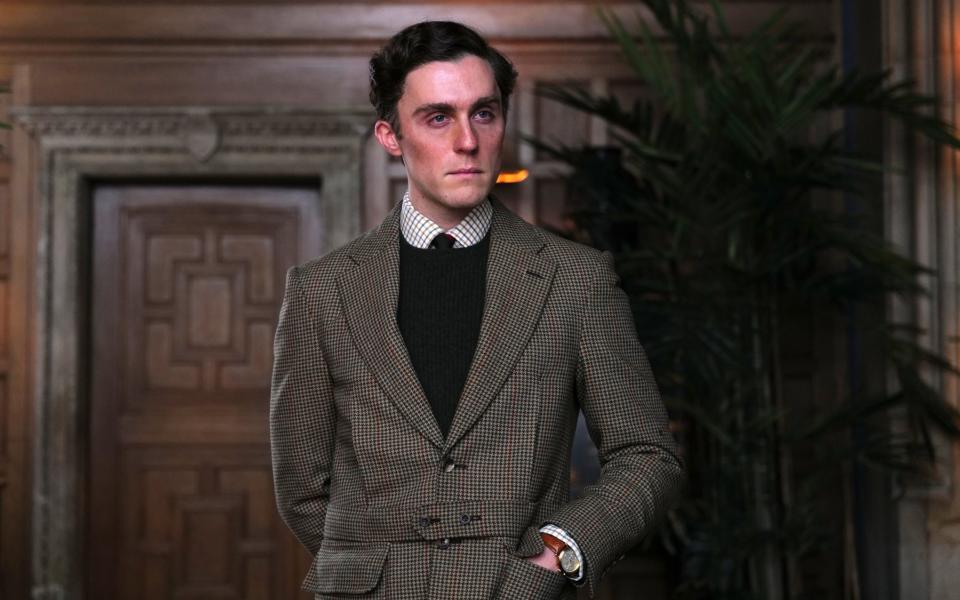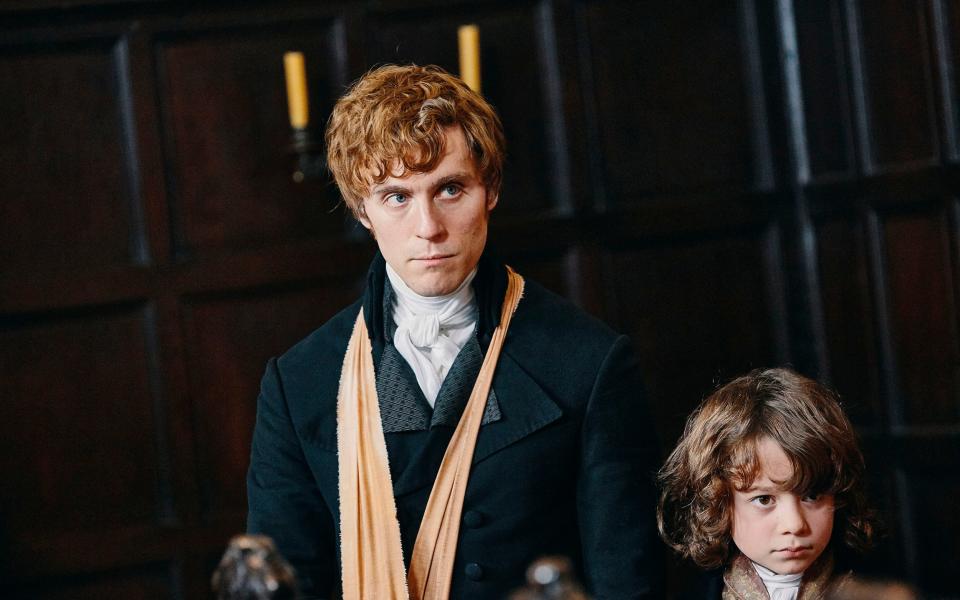Jack Farthing interview: ‘I knew that I had to fight Prince Charles’s corner’

Jack Farthing doesn’t believe in big breaks. “As an actor, you do lots of good stuff that no one cares about. And then, sometimes, you do something that someone does care about and people are like: ‘This is your break!’ And inevitably, it’s not. Most people just plod along.”
This may sound a bit bitter, but I think it is just modesty. The 36-year-old hippy-haired actor – looming on my laptop screen from his north London home – is about to hit the big time after spending a decade primarily on the small screen (most prominently as George Warleggan, the sour foil to Aidan Turner’s lusty hero, in all five seasons of Poldark).
He has roles in not one, but two new Oscar-baiting Hollywood films: Spencer, Pablo Larraín’s fever dream about one fraught Christmas that Princess Diana spent at Sandringham (out next week); and The Lost Daughter, an adaptation of an Elena Ferrante novel starring Olivia Colman and directed by Maggie Gyllenhaal. In the former, cinema goers will experience him as a grey-faced Prince Charles, spitting venom at Kristen Stewart’s Diana. In the latter, he plays the hopeless, well-meaning Joe, husband to Jessie Buckley’s overwhelmed young mother.
The roles are, oddly, similar: both are striving, but lost young men. The films are already critical hits and Farthing is excellent in both. Surely this is the moment that he becomes a household name? He politely disagrees. “If [the films] pull the minds of casting directors away from, you know, me in 18th-century England, that’s great,” he says. “But I’m not interested in suddenly exploding into the world. “I’m more interested in whether or not [the films] will lead me to more people like these two directors [Larraín and Gyllenhaal] than I am in suddenly being famous. Whatever that is.”
Any verbal echo of Prince Charles’s most famous public utterance (“Whatever ‘in love’ means”) is apparently unconscious. But it’s not all that surprising given Farthing’s approach in preparing for such a high-profile role.

He counts Josh O’Connor, the actor who won several awards for his portrayal of Charles in two seasons of The Crown, as a close friend. Did he ask him for tips on capturing the Prince? “We didn’t share notes, no, but we did exchange some very funny phone calls about it. I sent him a picture of my signet ring, just so he knew what part I was playing.”
When he submerged himself in research, he tried to limit himself to Charles’s words about himself. “There’s so much written about him and why he behaves like he does. But for me, it’s much more interesting to try to find out what he says about himself, in as private a sphere as you can find.”
He focused, in particular, on Jonathan Dimbleby’s 1994 documentary, Charles: The Private Man, the Public Role, which came out a few years after the film takes place, and features long interviews with the Prince. He learned it off by-heart, speaking Charles’s words along with him, trying “to find my way into his thoughts”.
The process fostered within him empathy for Charles and “the weight he’s living under” – an unfashionable view among his age group, he freely admits, in the wake of allegations made by the Duke and Duchess of Sussex about their treatment at the hands of the Royal family in general and Charles in particular. “I have quite a biased perspective on him. I mean, it’s based on reading his own words. I don’t think it’s objective at all. I had to show up and fight his case and present his version. I had to be his bodyguard and his lawyer. If I’d showed up not believing in him and how he felt, there would have been nothing for Diana to oppose.”
His biggest scene in Spencer, in which he and Stewart confront each other across a billiard table, was filmed, unrehearsed, on day one of the shoot. The coldness between them is visceral.

Farthing has spoken in the past about his desire not to be typecast – he was educated at Westminster and Oxford and made his name playing well-heeled types. I wonder, then, if he felt any reluctance in accepting the part of Charles? “No, because it was Pablo, who is very just bold and original. I knew he would be coming at the story from an angle.” (The Chilean director of the 2016 films Jackie and Neruda is known for a genre-splicing, time-bending approach to biopics.)
Plus, he says, he sees Charles more as an individual than a type: “He is in such a unique and weird position.” Farthing does, however, think that our culture is over-saturated in depictions of aristocratic characters, particularly those from the past. “Having the same type of people do the same type of thing, it’s not what this business is supposed to be you know? It’s supposed to be a reflection of the world now.”
Perhaps this is bad news for Farthing, who has been incredibly successful in breeches and a variety of splendid hats. His response is surprising. “I was talking to someone the other day, who was talking about what their particular channel was producing, what they were after, and they said the interest in period dramas was just done. People are interested in stuff like sci-fi now, stuff that’s gonna appeal to a broad range of people, to younger people.
“To be honest, I think the days of people wanting those classic period adaptations full of posh people are over. I think there will always be [some] because it’s a great part of our cultural history in the UK. But I think we are moving beyond that.”
Spencer is in cinemas from November 5; The Lost Daughter will be in select cinemas from December 17 and on Netflix from December 31


